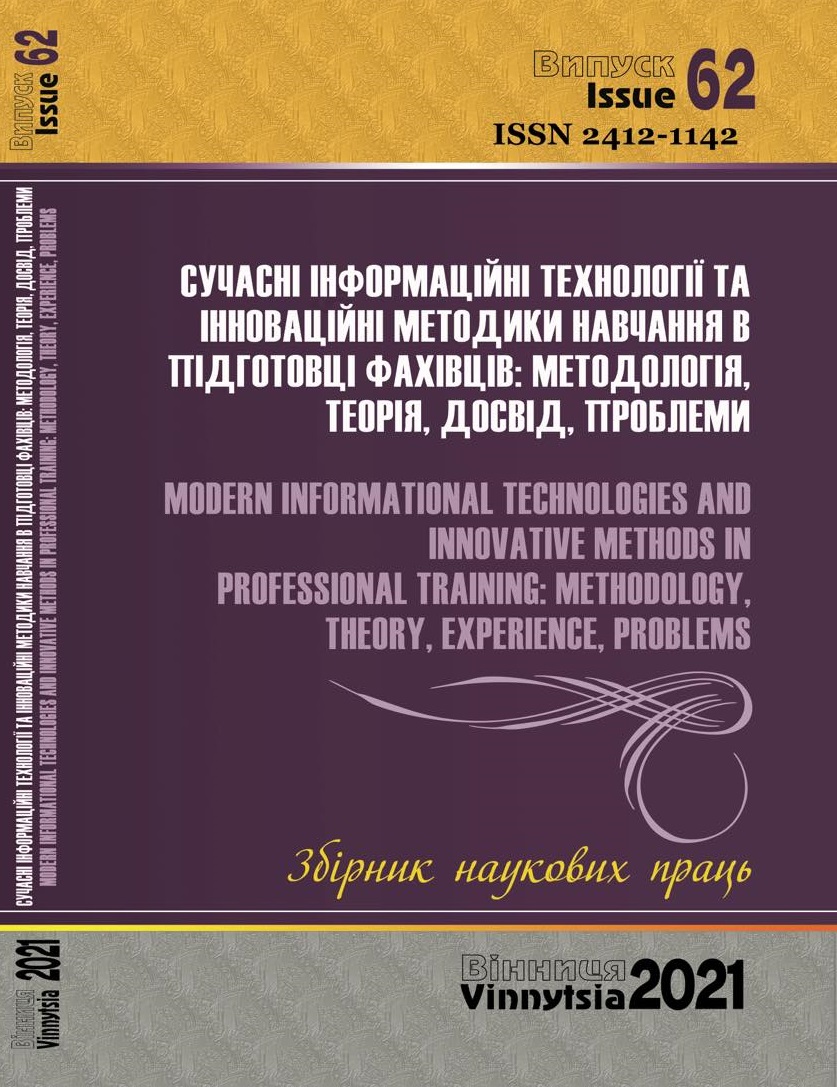THE WAYS TO OVERCOME GROUP WORK CHALLENGES IN LEARNING ENGLISH
DOI:
https://doi.org/10.31652/2412-1142-2021-62-182-191Keywords:
mini-group; group work; project work; risks of group work; organizational costs; motivational costs; intellectual costsAbstract
The article highlights the specifics of the organization of group and project work in teaching
foreign languages. The authors emphasize the exceptional importance of group work for the development
of students' soft skills (communication, collaboration, critical thinking, creativity etc.), learning foreign
languages and overall academic success. Particular attention is paid to the study of difficulties and risks in
the use of group forms of learning and to the description of ways and means of preventing and overcoming
them.
The risks of learning in mini-groups for students include organizational (related to the time and efforts
required in team work and not required for individual performance of the same task), motivational (related
to the reverse, demotivating impact of student cooperation, which is often caused by one or more
phenomena such as free riding, social loafing and conflicts) and intellectual costs (based on the negative
phenomena of collective intellectual activity, which are traditionally manifested in mini-groups such as:
group thinking, escalation of commitment, transparency illusion). Special focus is placed on both positive
and negative aspects of group tasks and projects in teaching foreign languages. The main risks in this aspect
include additional time for careful advance planning, monitoring, correction and control of tasks or projects,
grouping students, delegating roles, selecting and providing them with tools and materials, etc.); the need
to develop students' skills of cooperation and collaboration during group work; difficulties in assessing the
process and outcomes of a task or project and difficulties in assessing individual and group results in a
mini-group task or project in foreign language teaching. The way the students are grouped largely
determines the effectiveness of the task or project implementation. The article highlights several approaches
to combining students into groups, the advantages and disadvantages of each of them correspondently.
Downloads
References
Козленко О.Г. Коефіцієнт особистої участі як вимірник результатів групової навчальної діяльності учнів.
Біологія і хімія в школі. 2001. No 6. С.14-15.
Карплюк С.О. Групова форма організації навчальної діяльності студентів природничо-математичних
дисциплін. Актуальні проблеми математики та методики її викладання. Житомир: Вид-во ЖДУ ім. І.
Франка, 2007. C. 29-34.
Колеснік К. Особливості впровадження в освітній процес фронтальних, групових індивідуальних форм
організації молодших школярів. Студентський науковий вісник. Серія: педагогіка, психологія та фахові
методики: зб. тез та статей. 2016. Випуск No7. С. 30-33.
Корчагіна О. В. Нові форми навчання в процесі викладання дисциплін спеціальності "реклама та зв'язки з
громадськістю". Науковий вісник Донбасу. 2014. No 4. – URL: http://nbuv.gov.ua/UJRN/nvd_2014_4_7.
Мосьпан Н. В. Технологія групової діяльності. Педагогічні науки 2011. Випуск 95. С. 166-172.
Каламаж В. О. Психолого-педагогічні умови реалізації групової проектної діяльності під час вивчення
іноземної мови. Наукові записки Національного університету «Острозька академія». Серія «Психологія».
Випуск 4. С. 104-113.
Eberly Center Teaching Excellence and Educational Innovation. – URL:
http://www.cmu.edu/teaching/designteach/design/ instructionalstrategies/groupprojects/index.html (дата
звернення: 20.06.2021).
Ways to Pair Up Students - Insights to English. – URL: https://www.insightstoenglish.com/teaching-tips/ways-to-
pair-students/ (дата звернення: 21.06.2021).
Downloads
Published
Issue
Section
License
Copyright (c) 2021 Олеся Федорова, Марина Бабічева, Ольга Степенко

This work is licensed under a Creative Commons Attribution 4.0 International License.





